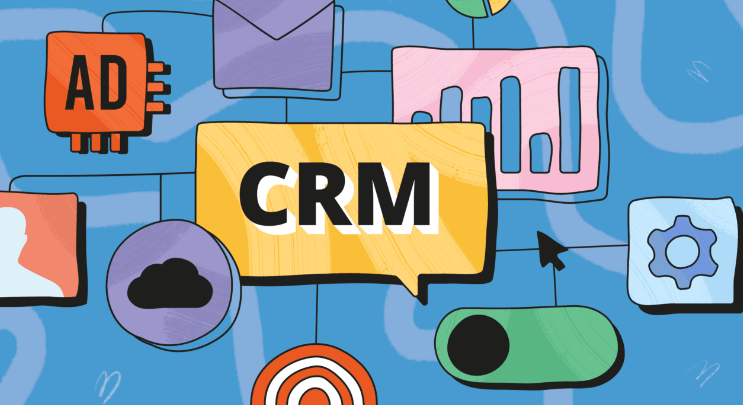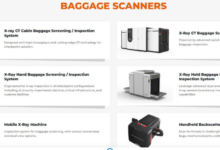
Maximizing Dealership Efficiency: Integrating Advanced CRM Software Solutions
Table of Contents
- Understanding CRM Software and Its Role in Modern Dealerships
- Key Features to Look for in a Dealership CRM Software
- Improving Customer Interaction with CRM Tools
- Training Staff to Maximize the Potential of CRM Software
- The Impact of Mobile Technology on Dealership CRM Solutions
- Analyzing CRM Data to Enhance Dealership Operations
- The Future of CRM Software in the Automotive Sector
- How to Choose the Right CRM Provider for Your Dealership
Key Takeaways
- CRM software is increasingly essential for enhancing dealership operations and customer relationships.
- Features to consider in a dealer CRM include user-friendliness, integration capabilities, and customizable automation.
- Personalization and efficient lead management through CRM tools improve customer interactions significantly.
- Employee training is essential for leveraging the full benefits of CRM solutions.
- Understanding the future direction of CRM can prepare dealerships for adopting emerging technologies.
Understanding CRM Software and Its Role in Modern Dealerships
In the fast-paced world of automotive sales, the significance of customer relationship management (CRM) software cannot be understated. A dealership’s ability to nurture customer relationships, streamline operations, and track sales is critical for long-term success. CRM platforms effectively serve this need by providing robust tools that allow for more than just transactional interactions; they create opportunities for engagement at every touchpoint in the customer lifecycle. Using these platforms can help establish a more consistent approach to customer service, which builds trust and loyalty, leading to repeat business.
Moreover, a well-integrated CRM can be the lifeline of a dealership’s sales force by automating routine tasks, funneling promising leads to the proper channels, and generating actionable insights from customer data.
Key Features to Look for in a Dealership CRM Software
When selecting a dealer CRM solution, dealerships should prioritize essential features that match their operational goals. A fundamental requirement is a user-friendly interface, enabling staff to easily navigate the system, which is crucial for high user adoption rates. Additionally, seamless integration capabilities are vital, offering a unified platform that integrates various business aspects such as inventory, sales, finance, and marketing tools. It is crucial to have a well-integrated system to increase efficiency and ensure accuracy in business operations. Additionally, it is essential to consider customizing processes to meet each dealership’s specific needs. A Dealer CRM that offers flexibility to tailor functionalities such as sales processes or customer outreach campaigns is invaluable. By implementing an effective Dealer CRM, dealership employees can reduce time on administrative tasks, allowing them to focus more on customer engagement, ultimately leading to better sales outcomes and a healthier bottom line.
Improving Customer Interaction with CRM Tools
Personalization is at the heart of modern sales strategies, and CRM tools are perfectly poised to enhance this aspect of customer interaction. By harnessing the comprehensive data stored within these systems, dealerships can engage with customers individually and attentively. This could range from remembering personal preferences to tracking shopping behavior and past interactions, all to deliver a seamless and personable experience.
Effective lead management afforded by sophisticated CRM tools means the difference between a missed opportunity and a sale. With the right CRM, a dealership can respond promptly and accurately to each customer query. It also simplifies tracking potential sales progress, ensuring every customer gets through the cracks.
Training Staff to Maximize the Potential of CRM Software
A state-of-the-art CRM system is only as good as its staff. Consequently, the proper training protocols are crucial. Comprehensive training ensures that the dealership team is comfortable using the new system and understands how to effectively input data, analyze it, and use it to their advantage. Engaging training materials and hands-on sessions can help employees grasp the full breadth of features offered by the CRM.
Beyond initial training, ongoing support and learning opportunities should be a focus for management. This fosters continuous improvement and keeps staff updated on any updates or new features that can enhance performance. Accordingly, staff skilled in leveraging CRM capabilities contribute significantly to developing streamlined processes, improving customer relationships, and dealership profitability.
The Impact of Mobile Technology on Dealership CRM Solutions
Mobile accessibility has transformed the landscape of CRM capabilities. With salespeople no longer tethered to their desks, mobile CRM apps permit real-time access to data, fostering dynamic interactions between sales staff and customers. This portable convenience means client meetings can occur anywhere, with all the needed information at the salesperson’s fingertips.
Yet, with great convenience comes a greater responsibility for securing mobile access to CRM data. The dealership should implement a comprehensive mobile strategy to ensure robust security measures, including securing endpoints, enforcing strong authentication methods, and providing ongoing education on best practices to prevent unauthorized data access.
Read also
Read also Helpful Tools for Business Leaders: From Project Accounting to Long-Term Van Rentals
Analyzing CRM Data to Enhance Dealership Operations
The discerning analysis of CRM data can uncover information that significantly impacts dealership decisions. This granular level of detail, from customer preferences and behaviors to sales trends and performance metrics, enables more strategic and targeted business resolutions. Analytical avenues such as these can permeate various departments, from the sales floor, where they manifest as tailored customer interactions, to the stockroom, where inventory decisions are informed by buying patterns and predictions.
The Future of CRM Software in the Automotive Sector
The future of dealership CRM software is tied closely with technological evolution, and keeping abreast of these changes is critical to ongoing success. Advances in AI promise to bring sophisticated pattern recognition to CRM, aiding in personalization and predictive analytics. These technologies can anticipate customer needs even before they articulate them, offering truly proactive customer service that can enhance reputation and results. As the automotive sector continues to evolve, so will the capabilities and applications of these technological tools, which dealerships can use to refine their competitive stance in the market.
How to Choose the Right CRM Provider for Your Dealership
Identifying the right CRM provider requires diligent research and defined criteria that align with your dealership’s goals. Examine potential providers’ track records of success, assess their offerings through demos and user reviews, and consider how each CRM aligns with your short and long-term business objectives. While evaluating the software’s current capabilities is essential, it’s equally vital to consider the provider’s vision for innovation and growth. The chosen CRM solution should be effective today and adapt and scale as the dealership expands and the industry evolves.






